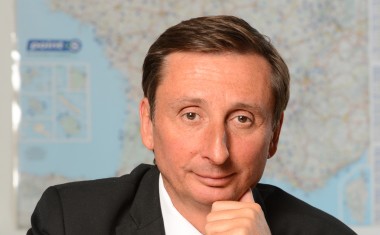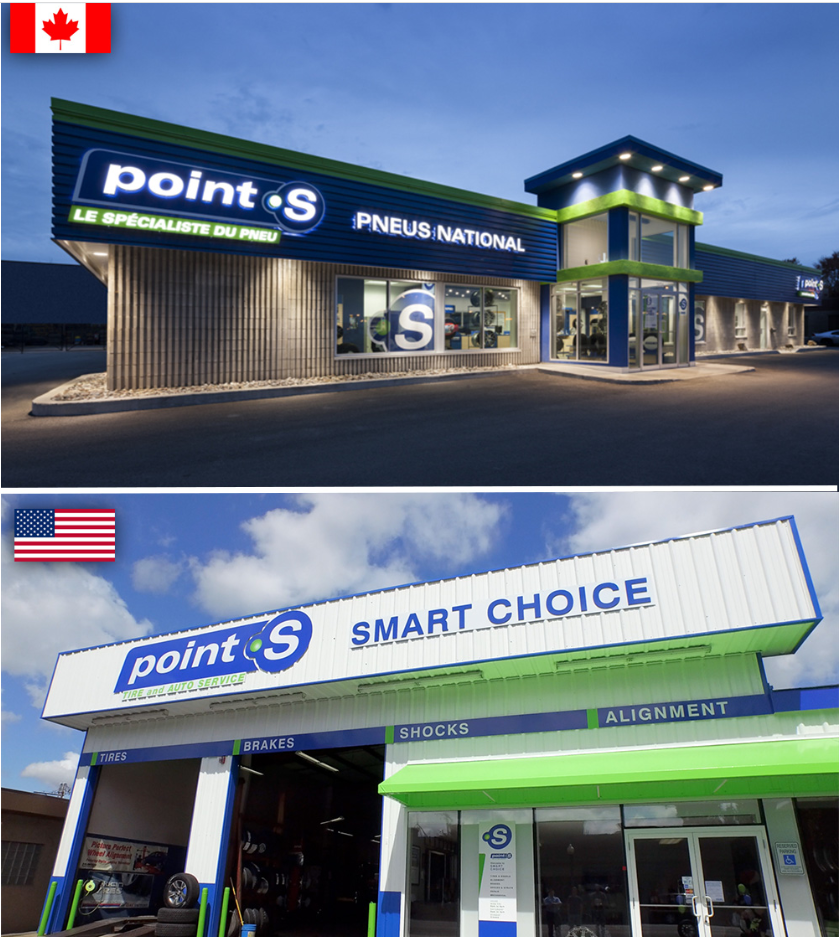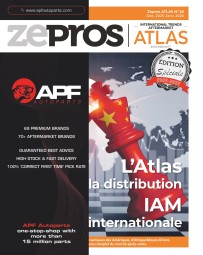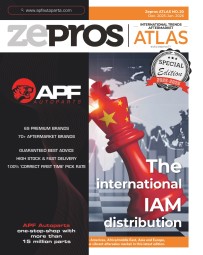
Christophe Rollet, Point S: “We are aiming for 10,000 outlets in 2030”

The Group is now approaching the €5 billion mark and has cleared another bar in its international ascent, exceeding 6,200 centres in 51 countries. A solid launch pad that puts Point S on the right track to continue expanding towards 10,000 repair outlets by 2030.
To build a solid bridge to a target market, the French company’s international team uses brand licensing in countries that are suitably mature. Here, Point S ties up with an existing network and gradually transforms it into its own brand before taking full control. This is a slower but more consolidating way of establishing a foothold, and a highly effective one at that. If the target market is less well structured, the group uses master franchising with investors who must come from the automotive industry, such as vehicle dealers or resellers, with their own business and sufficient financial resources to support the brand’s development. Their contractual mission obliges them to extend the brand themselves in compliance with its specifications (sales policy and minimum volumes via Alianco, its global purchasing structure, roll-out of points of sale, communication, etc.). For its part, Point S Développement provides members with advantageous purchasing conditions through global agreements with suppliers, together with management, sales and marketing tools, and contracts with key account customers. Ultimately, the contract is the same for all: to reach a minimum 5% market share in each new country in the short to medium term, to establish the brand’s legitimacy.
Mathematical deployment

Its guiding principle is to draw on the expertise of local teams capable of establishing a long-term presence for the brand. And itis this policy that has enabled Point S International to roll out its repair concepts from Sweden to Poland, from the United States to China, via North America (850 outlets in Canada), Africa and, for the past two years, South America. “We started out on this continent two years ago with Brazil, where we very quickly opened 40 centres and where we have a strong desire to expand”, says Christophe Rollet, who has so far stuck to a steady daily opening rate. “We’re opening one to two centres a day around the world (with a target of three to four countries a year).And we’re going to accelerate even further in the countries where we are established”, adds the group’s CEO. Because this increase in the number of sales outlets should automatically boost purchases with the central purchasing office, as well as boosting the brand’s visibility and reputation in order to attract new candidates. A virtuous circle guaranteed. And at this stage, it is important to remember the ambitious goal “but one that’s achievable”, exclaims the CEO – of 10,000 outlets by 2030! “We have 300 points of sale in the United States, for example, which is not enough on a country scale. Ideally, we’re aiming for 1,000 workshops there. Hence the alternative of forging closer links with other networks in a market where tyre distribution remains fragmented”, he points out. Within his team of international developers, a smaller unit, highly specialised by continent (Asia, Europe, Middle East/Africa and North America), works across the company on country management and coordination.
The Spanish example
His sights are firmly set on Asia-Pacific, with Australia in particular, although Christophe Rollet has learned to erron the side of caution. As experience is the sum of past mistakes, the group’s CEO is mindful of the example of Spain, where the first attempt to establish a presence fifteen years ago ended in failure. “We signed a contract with a tyre wholesaler that was sufficiently representative in terms of volumes sold. Except that they didn’t abide by our conditions and didn’t represent our brand as we had agreed. We decided to terminate the contract and leave the country, because under no circumstances were we going to let our image be tarnished, either with our clients or with our suppliers”, recalls Christophe Rollet. It was a sensible policy, even if it did bring its Spanish expansion to ahalt, before returning in 2023 with just nine outlets to start with.
Repair agreement with Chevrolet
In 2022, the brand signed an exclusive repair agreement with the all-electric Chinese brands Seres and DFSK, who were keen to enter the Frenchmarket. This first step was followed by a second, signed this time in South Africa with Chevrolet. The 120 local Point S centres are now approved to service vehicles from the brand, which is well established in the country. Is this first foray into the auto makers’ world, through a repair agreement, the strategic step before adealer agreement? “It would make perfect sense in so far as we have a concept that can be replicated worldwide, called Vente Auto, enabling us to sell so-called zero-mileage vehicles. I’ve always said that we have a great deal to offer manufacturers. In fact, we’re the only ones with this trump card in our hand!”
Anticipation for self-preservation
These are all reassuring factors for the future, against a turbulent global backdrop and economic indicators that have taken a turn for the worse. According to Christophe Rollet, the last three years have numbed the general memory. “The pandemic and the explosive recovery have frozen what we were experiencing just before 2020. Inflation has masked reality. Businesses have benefited. Consumers have not, and the backlash was predictable, sooner or later. Anticipation is the only way to guard against unforeseen events. As an illustration, take the launch of new concepts over the last three years, such as Point S Glass or Point S Écomobilité for bicycle sales, or Vente Auto, as mentioned earlier. This is the only way to ensure the profitability of our businesses in the years to come, at least on a three-year plan. After all, anyone who can predict the future in ten years’ time is a lucky guy”, concludes Christophe Rollet.








